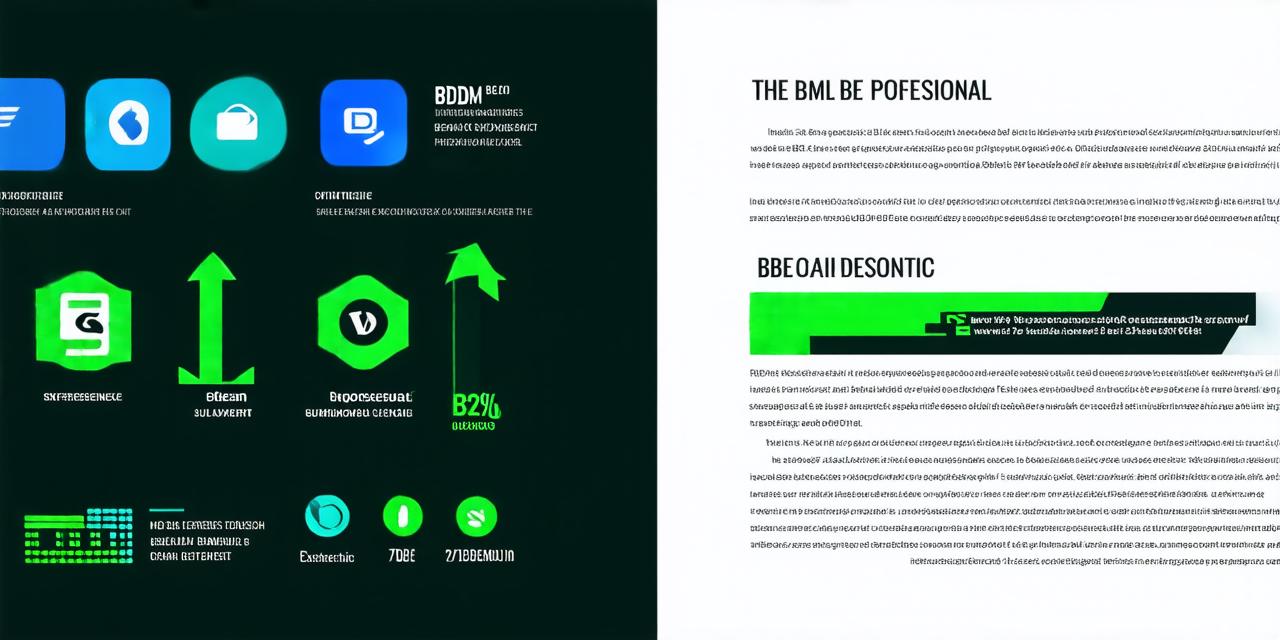
Table of Contents
- Introduction
- The Role of Business Development Managers (BDMs)
- The Role of Business Development Executives (BDEs)
- Key Differences between BDMs and BDEs
- Case Studies: How BDMs and BDEs Contributed to the Success of Companies
- Personal Experiences: What it’s Like to be a BDM or BDE
- Frequently Asked Questions (FAQs)
Introduction
Business development is an essential process for any organization that wants to grow. It involves identifying new opportunities, developing relationships with potential clients, and creating strategies to expand the company’s reach. Both Business Development Managers (BDMs) and Business Development Executives (BDEs) are crucial in this process, but their roles differ significantly.
The Role of Business Development Managers (BDMs)
Business Development Managers (BDMs) are responsible for identifying new business opportunities and generating leads. They typically work in a specific geographic area and build relationships with potential clients, negotiating deals and closing sales. BDMs often have a strong understanding of the industry they operate in and use this knowledge to tailor their approach to each client’s needs.
The Role of Business Development Executives (BDEs)
Business Development Executives (BDEs) are responsible for developing and implementing strategies that drive growth across multiple regions and industries. They work closely with senior management, identifying new markets, trends, and technologies to create a roadmap for future growth. BDEs also lead cross-functional teams, collaborating with marketing, product development, and other departments to ensure the success of the company’s initiatives.
Key Differences between BDMs and BDEs
- Geographic Focus: BDMs typically focus on a specific geographic area, while BDEs have a broader focus across multiple regions and industries.
- Responsibilities: BDMs are responsible for identifying new business opportunities, generating leads, negotiating deals, and closing sales, while BDEs are responsible for developing and implementing strategies that drive growth across multiple regions and industries.
- Experience: BDMs often have a strong understanding of the industry they operate in and use this knowledge to tailor their approach to each client’s needs. BDEs have a broader focus on business strategy, often with experience working across multiple industries.
- Team Leadership: BDMs typically lead small teams of salespeople, while BDEs lead cross-functional teams that include marketing, product development, and other departments.
- Growth Potential: BDMs may have more opportunities for rapid career advancement within a specific industry or region, while BDEs have the potential to move up the corporate ladder and take on more significant responsibilities at a global level.
Case Studies: How BDMs and BDEs Contributed to the Success of Companies
Here are some examples of how BDMs and BDEs contributed to the success of companies:
- Salesforce: Salesforce is one of the world’s leading software-as-a-service (SaaS) companies, with a market capitalization of over $2.5 trillion. Their business development team plays a crucial role in driving growth, identifying new markets, and developing strategies to expand their reach. The company has a strong focus on innovation and developing cutting-edge technology, which has helped them stay ahead of the competition.
- Google: Google is one of the world’s largest and most successful companies, with a market capitalization of over $1.7 trillion. Their business development team plays a critical role in identifying new opportunities and driving growth across multiple industries, including search, advertising, and cloud computing. The company’s focus on innovation and disruption has helped them stay at the forefront of technology for decades.
- Uber: Uber is one of the world’s most disruptive companies, with a market capitalization of over $1 trillion. Their business development team plays a critical role in identifying new markets and developing strategies to expand their reach. The company has faced significant regulatory challenges in many countries, but its focus on innovation and disruption has helped it overcome these obstacles and continue to grow rapidly.
Personal Experiences: What it’s Like to be a BDM or BDE
Here are some personal experiences of what it’s like to be a BDM or BDE:
- As a BDM, I work closely with potential clients to understand their needs and develop solutions that meet their requirements. It requires a strong understanding of the industry I operate in, as well as excellent communication skills and the ability to build strong relationships. The job can be challenging at times, but seeing deals close and seeing the impact our work has on the company’s growth is incredibly rewarding.
- As a BDE, my role involves developing and implementing strategies that drive growth across multiple regions and industries. It requires a deep understanding of business strategy, as well as excellent communication skills and the ability to lead cross-functional teams. The job can be incredibly challenging at times, but seeing our initiatives come to fruition and contributing to the company’s success is an amazing feeling.
Frequently Asked Questions (FAQs)
What are the qualifications required to be a BDM or BDE?
To be a BDM, you typically need a bachelor’s degree in business, marketing, or a related field, as well as experience in sales and relationship-building. To be a BDE, you typically need a master’s degree in business, management, or a related field, as well as experience in strategy development and leadership.
How do BDMs and BDEs differ from salespeople?
BDMs and BDEs focus on developing relationships with potential clients and creating strategies to drive growth, while salespeople focus on closing deals and meeting sales targets.
What are the typical career paths for BDMs and BDEs?
BDMs may have more opportunities for rapid career advancement within a specific industry or region, while BDEs have the potential to move up the corporate ladder and take on more significant responsibilities at a global level.
How do BDMs and BDEs collaborate with other departments in the company?
BDMs often collaborate closely with marketing and product development teams to create tailored solutions for clients, while BDEs collaborate with cross-functional teams that include marketing, product development, and other departments to develop strategies that drive growth.
How do BDMs and BDEs stay up-to-date on industry trends and developments?
BDMs and BDEs often attend conferences, read industry publications, and network with other professionals in their field to stay current on industry trends and developments.
